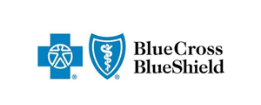Massachusetts Center for Addiction
Drug and Alcohol Rehab in Marblehead, MA

Taking the first steps to find drug and alcohol rehab in Marblehead, MA, can feel like an overwhelming and confusing process. You have options for addiction treatment, but you have questions and aren’t sure where to begin. Massachusetts Center for Addiction understands the challenges you are going through, and we’re here to help.
What Is the Best Addiction Program Near Marblehead, MA
A lot goes into finding the best addiction program near Marblehead, MA. The Substance Abuse and Mental Health Services Administration (SAMHSA) offers an online directory of addiction recovery centers by location that can be searched confidentially.
This is a great resource if you need help finding an addiction treatment center near Marblehead, MA, but aren’t sure where to begin.

Available Addiction Treatment Programs in Marblehead, MA
In Marblehead, MA, individuals seeking addiction treatment have access to a variety of programs tailored to meet their recovery needs. Each program is designed to provide the necessary tools and support for overcoming addiction and fostering long-term recovery.
Drug and Alcohol Detox
Due to the medical and mental health supervision that’s required, not every addiction treatment center near Marblehead, MA, offers drug and alcohol detox services. Drug detox is difficult, and depending on the type of addiction, the process may require medical or mental health intervention.
It’s important for the individual’s safety that detox does not happen at home. Instead, it should take place in an addiction treatment center or hospital that is equipped to handle this challenging stage of addiction recovery. Massachusetts Center for Addiction can help connect you with drug and alcohol detox near Marblehead, MA.
Inpatient Rehab for Addiction
There are different types of addiction treatment, with inpatient treatment being the most intensive, structured, and supportive. Inpatient addiction treatment is a residential treatment program where individuals stay at the addiction treatment center for a certain amount of time.
During the stay, evaluations and multiple types of therapies and treatments are used to create an individualized addiction treatment plan. Inpatient treatment varies in duration, typically lasting somewhere between three days and several weeks.
Partial Hospitalization Programs Marblehead, MA
Partial hospitalization programs (PHP) are a good option for individuals in two situations. First, for those who don’t require the support and structure of inpatient treatment. Second, for those unable to commit to a residential program.
A PHP rehab program involves intensive, individualized, full-day therapy, which may include addiction counseling, mental health therapy, group therapy, and more. PHP rehab allows you to return home in the evenings. It requires a commitment of at least six hours a day, several days a week.
Intensive Outpatient Program
Addiction recovery doesn’t look the same for each person, which is why it’s important to have a variety of treatment options available. Intensive outpatient programs (IOP) offer an option that’s in between partial hospitalization or inpatient addiction treatment.
IOP rehab includes multiple approaches to addiction recovery in a program that is designed for the individual. IOP rehab is an intensive half-day session. This commitment is several days per week, depending on the needs of the individual.
Additional Support Programs for Drug and Alcohol Addiction
Beyond traditional rehab, additional support programs for drug and alcohol addiction are available. These programs aim to provide a more comprehensive approach to recovery, addressing both the physical and psychological aspects of addiction.
Medication-Assisted Treatment Options
At the Massachusetts Center for Addiction, we know that recovering from addiction is one of the most difficult challenges you may ever face. We also recognize the value of using all of the tools available to support the recovery process and increase the chances of long-term success.
Medication-assisted treatment (MAT) is an approach that includes the use of FDA-approved medications to assist in helping the body adjust, reduce cravings, and prevent future relapse.
Dual Diagnosis Treatment Near Marblehead, MA
The importance of mental health care in addiction recovery can’t be overstated. Dual diagnosis is an approach that considers co-existing mental health conditions and their impact on substance use. With dual diagnosis treatment, mental health care is partnered with addiction treatment, treating coexisting mental health conditions at the same time.
Sober Living in Massachusetts
Addiction recovery doesn’t end the day you finish outpatient treatment. The sober living program at Massachusetts Center for Addiction offers transitional residential services, providing a safe, structured, and trigger-free environment as you transition from addiction treatment back into everyday life.
Aftercare Planning for Sustained Recovery
Addiction recovery is a lifelong process, and aftercare planning can help to ensure long-term success. Aftercare plans are individually designed and may include continual addiction counseling, mental health care, and group therapy, among other programs.
Family Recovery Programs
Addiction can put a strain on relationships with family and loved ones. Family programs offer those closest to the person going through addiction recovery the opportunity to open up about their own experience, work through trauma, learn how to set personal boundaries, build trust, and offer support in a healthy way.
Finding the Best Drug and Alcohol Rehab Near Marblehead, MA
Choosing an addiction treatment center near Marblehead requires the same thought as choosing a physician. The addiction treatment facility you choose should be one that you’re comfortable with and one that is aligned with your addiction recovery needs and goals. Using the SAMHSA directory to know your local options is a good place to start.
Once you move past the basics of location, it’s important to consider factors such as the type of addiction treatment offered. Are you looking for inpatient or outpatient treatment? Can the addiction treatment center assist you in receiving care for drug or alcohol detox? What types of therapies are used, and are mental health issues also addressed as a part of recovery?
If the cost of addiction treatment is a financial burden for you, learn which facilities are considered in-network with your insurance provider. There may also be additional grants, loans, or financial aid to help cover the costs.
Length of Drug and Alcohol Rehab Near Marblehead, MA
During the admissions and early assessment process, you’ll likely be given a timeline or a suggestion for how long treatment will take. However, these timelines are not fixed or unchangeable. Addiction recovery is a road that is ever-changing, and it’s difficult to predict with accuracy how long it will take.
Addiction recovery may look like a few days in inpatient drug rehab, followed by outpatient support. It might also look like several weeks of inpatient treatment, followed by weeks or months of partial hospitalization or intensive outpatient treatment. The path to recovery and the time it takes is different for everyone.
Helping A Loved One Find Treatment Near Marblehead, MA
At the Massachusetts Center for Addiction, we recognize the uncertainty and emotions that come with having a loved one who is suffering from addiction. The process of finding addiction treatment for your loved one varies.
It depends on if they’re ready to take the next step with your help. Alternatively, they may be resistant to the idea of treatment and possibly not yet ready to admit they have a problem.
Helping your loved one at this time is a nuanced process. We encourage you to contact us at the Massachusetts Center for Addiction any time of the day or night. We can help answer your questions and better understand the path forward.
Using Insurance To Pay for Drug and Alcohol Rehab
Are you hesitant to get the addiction treatment you need because you’re concerned it will be a financial burden for you or your family? If you’re covered under a health insurance plan, addiction treatment is included in your coverage.
Under the American Care Act (ACA), insurance providers are mandated to cover addiction treatment. Your individual coverage will vary depending on your insurance provider and plan. Massachusetts Center for Addiction works with most insurance.
In-Network Treatment Options
Choosing an in-network addiction treatment center will lower your out-of-pocket costs. Massachusetts Center for Addiction is in-network with Cigna, Aetna, and Tricare.
Using Out-Of-Network Benefits for Addiction Treatment
You can still choose an addiction care provider that is out of network. However, the overall costs to you will be more. Contacting your insurance provider and the addiction care center regarding your coverage and the costs will better prepare you financially.
Check Your Benefits for Treatment
It’s a good idea to check your benefits with your insurance provider directly. This should be done before being admitted to an addiction recovery center. If you’re unable to do this, the administrative staff can assist and help you understand your benefits.
Getting Started with Massachusetts Center for Addiction
Massachusetts Center for Addiction is here to answer your call and make sure you get the addiction treatment you need. Contact the Massachusetts Center for Addiction 24/7 at 844-486-0671. Don’t wait another day; make this important call today.













